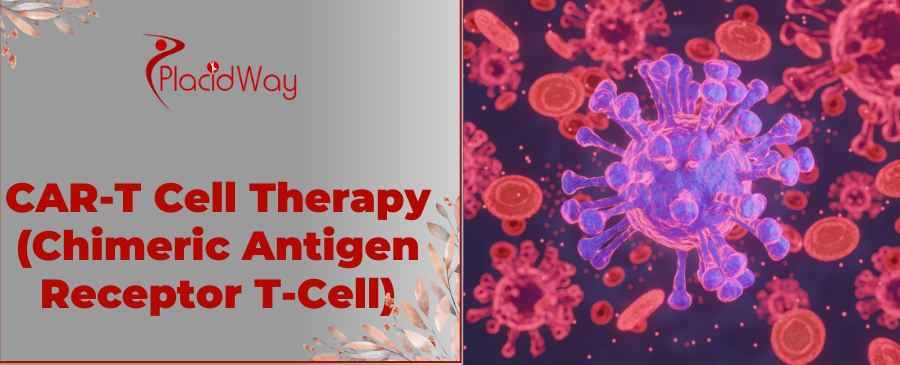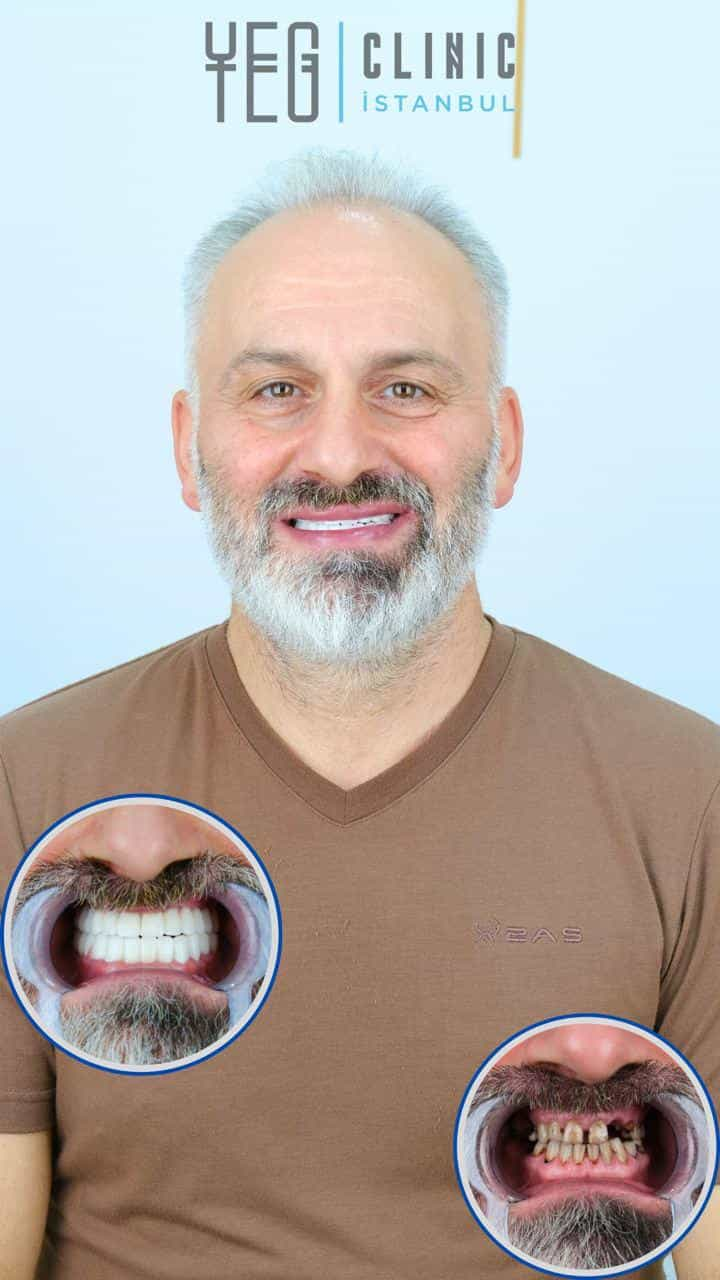
Unlocking New Hope: CAR-T Cell Therapy - Your Guide to Advanced Cancer Treatment
Facing a diagnosis of certain aggressive blood cancers can be daunting, especially when standard treatments have not yielded the desired results. In these challenging moments, the search for a truly transformative solution becomes paramount. This is where CAR-T Cell Therapy (Chimeric Antigen Receptor T-Cell Therapy) emerges as a beacon of innovative hope.
CAR-T cell therapy represents a groundbreaking leap in immunotherapy, a revolutionary approach that harnesses the power of your own immune system to target and destroy cancer cells. Unlike traditional chemotherapy or radiation, CAR-T is a personalized, living drug designed to seek out and eliminate specific cancer types. It's often considered for patients with certain types of aggressive non-Hodgkin lymphoma, acute lymphoblastic leukemia, and multiple myeloma that have relapsed or are refractory to previous treatments, offering a chance for deep, durable remission.
For many, particularly those seeking the latest advancements, more affordable options, or shorter wait times, exploring CAR-T cell treatment abroad has become a viable and attractive path. This comprehensive guide will walk you through what CAR-T therapy entails, who it benefits, its potential, and how medical tourism can make this life-changing treatment accessible to you.
What Symptoms Indicate a Need for CAR-T Cell Therapy?
CAR-T cell therapy targets specific blood cancers, primarily certain lymphomas, leukemias, and multiple myeloma. The symptoms you might experience are typically those of the underlying cancer, often indicating that previous treatments haven't been successful or that the disease has returned. These can include:
- Persistent Fatigue and Weakness: Feeling unusually tired, even after rest, is a common sign as cancer cells can disrupt normal bodily functions and consume energy.
- Swollen Lymph Nodes: For lymphomas, painless swelling in the neck, armpits, or groin is a key indicator.
- Unexplained Weight Loss and Night Sweats: These are systemic "B symptoms" that can occur with various cancers.
- Frequent Infections and Fever: A weakened immune system due to cancer affecting blood cells can lead to recurring illnesses.
- Bone Pain or Fractures: Common in multiple myeloma, where cancer affects plasma cells in the bone marrow.
- Easy Bruising or Bleeding: Low platelet counts due to bone marrow involvement.
It’s important to note that a doctor typically recommends considering CAR-T therapy only after these symptoms persist despite other treatments, indicating a relapsed or refractory disease state. If you are experiencing these symptoms and your cancer is not responding to standard care, discussing advanced options like CAR-T with your specialist is crucial.
What Are the Underlying Causes and Risk Factors for Cancers Treated by CAR-T?
While CAR-T cell therapy is a treatment for established cancer, understanding the general causes and risk factors for the cancers it addresses can provide context. Cancers like Non-Hodgkin Lymphoma, Acute Lymphoblastic Leukemia (ALL), and Multiple Myeloma develop when specific immune cells (B-cells or plasma cells) grow uncontrollably due to genetic mutations. These mutations can be inherited or acquired throughout a person's life.
General risk factors include:
- Genetic Predisposition: A family history of certain cancers can increase risk.
- Weakened Immune System: Conditions like HIV/AIDS or immunosuppressant medications can increase susceptibility.
- Exposure to Certain Chemicals or Radiation: Some pesticides, herbicides, or previous radiation therapy can elevate risk.
- Viral Infections: Viruses like Epstein-Barr virus (EBV) or Human T-lymphotropic virus (HTLV-1) have been linked to certain lymphomas.
- Age: Risk generally increases with age, particularly for multiple myeloma and certain lymphomas.
It's crucial to remember that CAR-T therapy works by targeting the cancer cells themselves, regardless of their original cause. It's a treatment designed to eliminate the disease, not to reverse the initial cellular damage that led to the cancer.
How Does CAR-T Cell Therapy Work, and What Types Are Available?
CAR-T cell therapy is a sophisticated, multi-step process that can be likened to "training" your own immune system to become a highly specialized cancer fighter. Here's how it generally works:
- T-Cell Collection (Apheresis): Your blood is drawn, and a machine separates out your T-cells, a type of white blood cell crucial for immunity. This process is similar to donating blood.
- T-Cell Engineering: In a specialized lab, these collected T-cells are genetically modified using a harmless virus. A new gene, encoding a Chimeric Antigen Receptor (CAR), is inserted into the T-cells. This CAR allows the T-cells to specifically recognize and bind to a protein (an antigen) found on the surface of your cancer cells.
- T-Cell Expansion: The engineered CAR-T cells are then multiplied in the lab, growing into billions of cells. This takes several weeks.
- Conditioning Chemotherapy: Before the CAR-T cells are infused, you may receive a short course of chemotherapy to reduce the number of existing immune cells, making space for the new CAR-T cells to multiply and expand more effectively in your body.
- CAR-T Cell Infusion: The expanded CAR-T cells are infused back into your bloodstream, similar to a blood transfusion. Once inside, they begin to seek out and destroy cancer cells throughout your body.
Currently, several types of CAR-T products are approved for different indications:
- CD19-targeted CAR-T cells (e.g., Kymriah, Yescarta, Tecartus, Breyanzi): Used for specific types of B-cell lymphomas and acute lymphoblastic leukemia. They target the CD19 protein found on these cancer cells.
- BCMA-targeted CAR-T cells (e.g., Abecma, Carvykti): Approved for certain types of relapsed or refractory multiple myeloma, targeting the B-cell maturation antigen (BCMA) on myeloma cells.
Researchers are also exploring CAR-T therapies for solid tumors and other blood cancers, with ongoing clinical trials worldwide.
Who Is Eligible for CAR-T Cell Therapy, and What Are the Criteria?
CAR-T cell therapy is a powerful treatment, and as such, specific eligibility criteria must be met to ensure patient safety and maximize effectiveness. The ideal candidate typically has:
- Specific Cancer Diagnosis: Approved for certain types of aggressive B-cell non-Hodgkin lymphoma (like DLBCL), B-cell acute lymphoblastic leukemia (ALL) in young adults, and multiple myeloma, particularly when the cancer has relapsed or proven resistant to other treatments.
- Relapsed or Refractory Disease: Patients must have tried and failed at least two (sometimes more) prior lines of systemic therapy.
- Good Overall Health (Performance Status): Patients generally need to be in good physical condition (e.g., ECOG performance status 0-1 or Karnofsky score ?70), capable of tolerating intensive treatment and potential side effects.
- Adequate Organ Function: Healthy heart, lung, kidney, and liver function are critical, as assessed by various tests.
- No Active Infections: Patients must be free of active, uncontrolled infections before CAR-T cell infusion.
- No Significant Autoimmune Disease or CNS Involvement: Certain conditions might make CAR-T therapy too risky.
- Age: While there are no strict upper age limits, the patient's overall health and ability to tolerate treatment are more important than chronological age.
A comprehensive evaluation by a multidisciplinary team is essential to determine if CAR-T therapy is the right option for you. This involves detailed medical history, physical exams, and extensive diagnostic testing.
What is the Recovery Time and What Can I Expect After CAR-T Treatment?
The journey with CAR-T cell therapy doesn't end with the infusion; recovery is a critical phase requiring careful monitoring and patience. Here's a general timeline for CAR-T recovery:
- Initial Hospital Stay (2-4 weeks): After infusion, you'll be closely monitored in the hospital for potential immediate side effects like Cytokine Release Syndrome (CRS) and neurotoxicity. Your medical team will manage these symptoms if they arise.
- Outpatient Monitoring (Weeks to Months): Even after discharge, close outpatient monitoring is crucial. You'll need to stay near the treatment center for several weeks (typically 4-8 weeks) for regular check-ups, blood tests, and to manage any delayed side effects.
- Immune Reconstitution: Your immune system will be suppressed after treatment. It can take months, or even a year or more, for your immune system to fully recover, increasing your risk of infection during this period. You'll likely receive antibiotics and other prophylactic medications.
- Fatigue and Cognitive Changes: Many patients experience prolonged fatigue, "brain fog," or difficulty concentrating for several months. This gradually improves with time.
- Gradual Return to Normal: Most patients can slowly return to normal activities, including work or school, within 3-6 months, but full recovery can take up to a year. Support from caregivers during this period is invaluable.
It's a marathon, not a sprint, and each patient's CAR-T recovery experience is unique. Open communication with your medical team about any symptoms or concerns is essential.
What Are the Potential Risks and Side Effects of CAR-T Cell Therapy?
While CAR-T cell therapy offers profound benefits, it also comes with potential risks and side effects that require specialized management. The most common and significant ones include:
- Cytokine Release Syndrome (CRS): This is the most common and often appears within days to weeks after infusion. It occurs when activated CAR-T cells release large amounts of inflammatory proteins (cytokines), causing systemic inflammation. Symptoms range from mild (fever, fatigue, muscle aches) to severe (low blood pressure, difficulty breathing, organ dysfunction). It is typically managed with supportive care and medications like tocilizumab.
- Immune Effector Cell-Associated Neurotoxicity Syndrome (ICANS): This refers to neurological side effects, which can occur concurrently with CRS or later. Symptoms include confusion, language difficulties, tremors, headaches, seizures, and even swelling in the brain. Most cases are temporary and reversible, managed with steroids and supportive care.
- B-Cell Aplasia: Since CAR-T cells often target CD19 (found on both cancerous and healthy B-cells), normal B-cells can also be destroyed, leading to hypogammaglobulinemia (low antibody levels) and an increased risk of infection. This can persist for months or years and may require immunoglobulin replacement therapy.
- Infections: Due to immune suppression, patients are at higher risk of bacterial, viral, and fungal infections, especially in the first few months after treatment.
- Prolonged Cytopenias: Low blood cell counts (red blood cells, white blood cells, platelets) can persist for weeks or months, potentially requiring transfusions.
- Other Side Effects: Less common effects can include headaches, nausea, diarrhea, and fatigue.
The specialized centers that offer CAR-T therapy are equipped to monitor and manage these side effects effectively, ensuring patient safety throughout the treatment journey.
How Much Does CAR-T Cell Therapy Cost Worldwide?
The cost of CAR-T cell therapy is a significant factor for many patients, especially those without comprehensive insurance coverage or facing limited options in their home country. This groundbreaking treatment is complex and expensive, but prices vary considerably across different regions due to drug manufacturing costs, healthcare system structures, and local economic factors. The total cost typically includes the CAR-T cell product itself, hospital stay for infusion and monitoring, pre-treatment chemotherapy, follow-up care, and potential management of side effects.
Here’s an approximate comparison of CAR-T cell therapy costs in various regions (all figures are estimates and can vary significantly based on specific product, clinic, and patient needs):
| Region/Country | Estimated Cost Range (USD) | Notes |
|---|---|---|
| United States | $500,000 - $1,000,000+ | Highest costs, driven by drug price and comprehensive hospital care. |
| Western Europe (e.g., Germany, UK) | $400,000 - $700,000+ | High quality, but still substantial costs. Some public healthcare systems cover it. |
| India | $70,000 - $150,000+ | Significantly more affordable, with growing expertise and infrastructure. |
| Turkey | $90,000 - $180,000+ | Emerging medical tourism hub with advanced facilities and competitive pricing. |
| South Korea | $250,000 - $450,000+ | High-tech facilities, strong R&D, and excellent medical standards. |
| Mexico | $100,000 - $250,000+ | Proximity for North American patients, growing specialized clinics. |
These figures highlight why many patients look beyond their borders for CAR-T cell therapy, seeking both affordability and access to world-class medical expertise.
Why Should I Consider CAR-T Cell Therapy Abroad?
The decision to seek medical treatment abroad, especially for something as complex as CAR-T cell therapy, is significant. However, for many patients, it offers compelling advantages:
- Significant Cost Savings: As seen in the cost comparison, the price difference for CAR-T therapy can be hundreds of thousands of dollars, making it accessible for patients who couldn't afford it domestically.
- Access to Advanced Treatments: Some countries may have earlier access to specific CAR-T products or offer clinical trials that are not yet available in a patient's home country.
- Reduced Wait Times: In countries with high demand or restrictive healthcare systems, patients can face long waiting lists. Traveling abroad can provide quicker access to life-saving treatment.
- Specialized Expertise: Renowned specialists and state-of-the-art facilities dedicated to cell therapies exist globally, offering world-class care.
- Privacy and Anonymity: For some, undergoing treatment away from their local community provides a sense of privacy during a vulnerable time.
- Comprehensive Packages: Many international hospitals and medical tourism facilitators offer all-inclusive packages covering treatment, accommodation, and sometimes even travel logistics.
For individuals facing a critical prognosis and limited options at home, medical tourism for CAR-T cell therapy can literally be a lifeline, opening doors to a future they might not have otherwise had.
Which Countries Offer the Best Value and Quality for CAR-T Cell Therapy?
When seeking CAR-T cell therapy abroad, patients are looking for a blend of quality, value, and accessibility. Several countries have established themselves as leaders in advanced medical treatments for international patients:
- India: Known for its highly skilled doctors, world-class hospitals (often JCI accredited), and significantly lower treatment costs, India has become a leading destination for complex medical procedures, including CAR-T therapy, with excellent patient care and good English-speaking staff.
- Turkey: Positioned at the crossroads of Europe and Asia, Turkey boasts modern hospitals with cutting-edge technology and experienced medical professionals. Its competitive pricing, coupled with a high standard of care, makes it attractive.
- South Korea: A powerhouse in medical technology and research, South Korea offers state-of-the-art facilities and some of the most advanced cancer treatment protocols. While costs might be higher than in India or Turkey, the quality of care and innovation are exceptional.
- Germany: Renowned for its stringent medical regulations, high safety standards, and leading research institutions, Germany provides top-tier medical care. It's often chosen by patients seeking the highest European standards, though at a higher price point than Asian alternatives.
- Mexico: For patients in North America, Mexico offers geographic proximity, making travel less burdensome. Its growing medical tourism sector includes specialized clinics offering advanced therapies at competitive rates.
These countries not only provide access to CAR-T therapy but also offer comprehensive patient support, often including international patient departments, ensuring a smoother treatment experience.
What Should I Expect When Traveling for CAR-T Cell Therapy Abroad?
Undertaking CAR-T cell therapy abroad requires careful preparation and an understanding of the logistics involved:
- Pre-Travel Consultation and Medical Records: You'll typically begin with a virtual consultation, sending all your medical records (translated into English if necessary) for review by the overseas medical team.
- Visa and Travel Arrangements: You'll need to secure a medical visa, which often requires invitation letters from the hospital. Arrange flights and accommodation for an extended stay—CAR-T therapy often requires 1-3 months abroad, including the T-cell collection, manufacturing wait time (if staying in the country), infusion, and initial recovery/monitoring period.
- Accommodation for Patient and Caregiver: It's crucial to have a designated caregiver to accompany you, as you will need support during and after treatment. Plan for accommodation that is comfortable and close to the hospital.
- Language and Cultural Support: Many international hospitals have dedicated international patient departments with English-speaking staff and translators.
- Financial Planning: Ensure all costs are clear and funds are accessible. Discuss payment schedules with the hospital.
- Post-Treatment Care and Follow-up: Discuss how follow-up will be managed once you return home. The overseas team will provide detailed reports for your local doctors. Be aware that flying immediately after CAR-T therapy may have restrictions due to immune status.
Working with a medical tourism facilitator like PlacidWay can significantly simplify these complex arrangements, providing guidance and support every step of the way.
How Can I Ensure Safety and Quality When Choosing CAR-T Therapy Abroad?
Safety and quality are paramount when considering any medical procedure, especially one as advanced as CAR-T therapy. When looking at options abroad, consider the following:
- Accreditation: Look for hospitals with international accreditations like Joint Commission International (JCI), which signifies adherence to global healthcare quality and patient safety standards.
- Physician Credentials: Verify that the oncologists and hematologists have extensive experience specifically with CAR-T cell therapy, often with international training and board certifications.
- Facility Expertise: Ensure the hospital has a dedicated cell therapy unit, an ICU capable of managing CAR-T specific side effects (like CRS and ICANS), and a highly trained multidisciplinary team.
- Transparent Communication: The clinic should provide clear, detailed information about the treatment plan, expected outcomes, potential risks, and all costs involved.
- Patient Testimonials and Reviews: Seek out independent reviews and success stories from other international patients who have undergone CAR-T therapy at the facility.
- Medical Tourism Facilitators: Engaging a reputable facilitator like PlacidWay can provide an extra layer of security. We vet clinics, connect you with specialists, help with logistics, and ensure transparent processes, giving you peace of mind.
By conducting thorough research and leveraging expert assistance, you can confidently choose a high-quality and safe CAR-T therapy program abroad.
Are There Patient Success Stories from Abroad for CAR-T Cell Therapy?
The landscape of CAR-T cell therapy is filled with inspiring stories of patients who, after exhausting conventional treatments, found renewed hope and achieved significant remission. Many of these success stories include individuals who traveled abroad to access this innovative therapy.
For patients facing dire prognoses, CAR-T therapy offers the potential for durable responses, transforming what was once a terminal diagnosis into a manageable or even curable condition. While individual results vary greatly based on the specific cancer, disease stage, overall health, and CAR-T product used, the general trend indicates remarkable efficacy in carefully selected patients. These "CAR T-cell patient testimonials abroad" often highlight not just the clinical success, but also the compassionate care, affordability, and accessibility that international clinics provide, making life-saving treatment a reality for people from diverse backgrounds.
These stories underscore the profound impact of medical tourism, providing access to advanced therapies that might otherwise be out of reach, and giving patients a chance to live healthier, longer lives.
Take the Next Step with PlacidWay
Ready to explore treatment options abroad? Discover top clinics, compare prices, and get a free quote tailored to your needs with PlacidWay.
Stem Cell Therapy Abroad










Share this listing